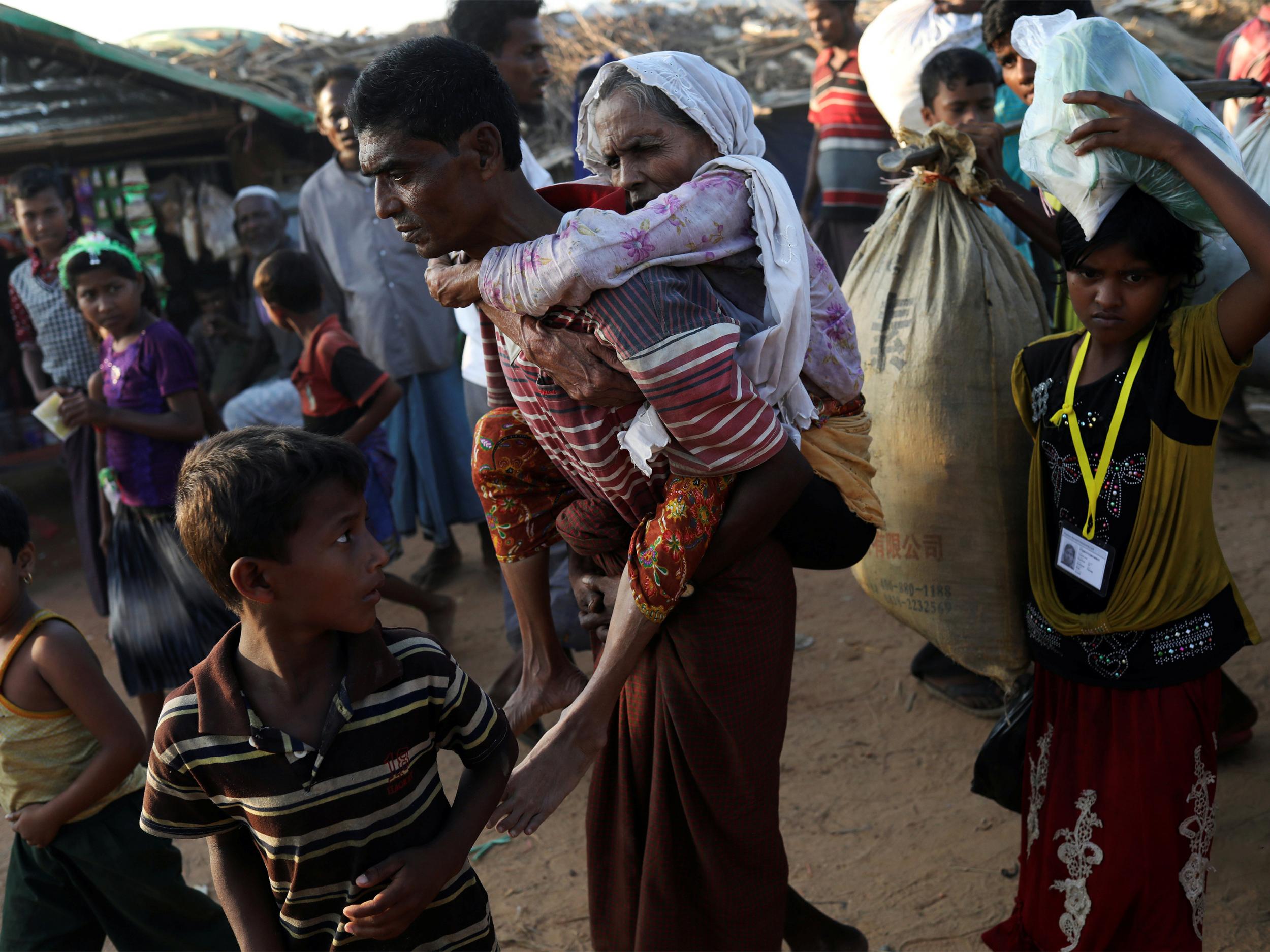Burma and Bangladesh sign deal to repatriate 'hundreds of thousands' of Rohingya Muslim refugees
'We are ready to take them back as soon as possible,' says Burmese permanent secretary

Your support helps us to tell the story
From reproductive rights to climate change to Big Tech, The Independent is on the ground when the story is developing. Whether it's investigating the financials of Elon Musk's pro-Trump PAC or producing our latest documentary, 'The A Word', which shines a light on the American women fighting for reproductive rights, we know how important it is to parse out the facts from the messaging.
At such a critical moment in US history, we need reporters on the ground. Your donation allows us to keep sending journalists to speak to both sides of the story.
The Independent is trusted by Americans across the entire political spectrum. And unlike many other quality news outlets, we choose not to lock Americans out of our reporting and analysis with paywalls. We believe quality journalism should be available to everyone, paid for by those who can afford it.
Your support makes all the difference.Burma and Bangladesh have signed an agreement to potentially repatriate hundreds of thousands of Rohingya refugees who have fled the country, a Burmese official has said.
"We are ready to take them back as soon as possible after Bangladesh sends the forms back to us," said Myint Kyaing, a permanent secretary at Burma's ministry of labour, immigration and population, referring to registration forms the Rohingya must complete before they are repatriated.
Burma provided no details on how many Rohingya refugees would be allowed to return home. Bangladesh said the repatriations are to begin within two months.
Burma's civilian leader Aung San Suu Kyi has previously promised repatriation would be "safe and voluntary", but humanitarian workers have expressed concerns the country's powerful generals could obstruct the process.
At least 620,000 Rohingya from Burma's Rakhine state have fled to neighbouring Bangladesh, seeking refuge from what Burma's military has called "clearance operations".
The crisis started in August, when Rohingya insurgents attacked Burmese security forces, triggering a brutal crackdown in which soldiers and Buddhist vigilante groups killed men, raped women and girls and burned homes to force the Rohingya to leave.
The Burma-Bangladesh agreement comes after the US on Wednesday described the ongoing violence against the Muslim minority as "ethnic cleansing" and threatened penalties for military officials.
"After a careful and thorough analysis of available facts, it is clear that the situation in northern Rakhine state constitutes ethnic cleansing against the Rohingya," US Secretary of State Rex Tillerson said in a statement.
The US embassy in Burma on Thursday suspended official travel to parts of Rakhine and warned citizens against visiting the areas, citing fears of a backlash against Mr Tillerson’s comments.
Burma is seeking to ease international pressure with the new memorandum, while Bangladesh is keen to ensure refugee camps – which have sprung up in the Cox's Bazar region in recent months – do not become permanent.
Humanitarian workers have previously raised concerns that the repatriation efforts could be hindered by the military, over which Ms Suu Kyi has no control.
Senior General Min Aung Hlaing said in a statement last week: “The situation must be acceptable for both local Rakhine ethnic people and Bengalis, and emphasis must be placed on wish of local Rakhine ethnic people who are real Myanmar citizens."
His use of the term Bengali for the Rohingya Muslims implies they from Bangladesh, and Buddhists in the Rakhine region fiercely object to a Bangladeshi presence.
The General also said the returnees will be “scrutinised and re-accepted under the 1982 Citizenship Law and the 1992 Myanmar-Bangladesh bilateral agreement”.
The 1982 law ties Myanmar citizenship to an official list of ethnicities that excludes the Rohingya.
Join our commenting forum
Join thought-provoking conversations, follow other Independent readers and see their replies
Comments